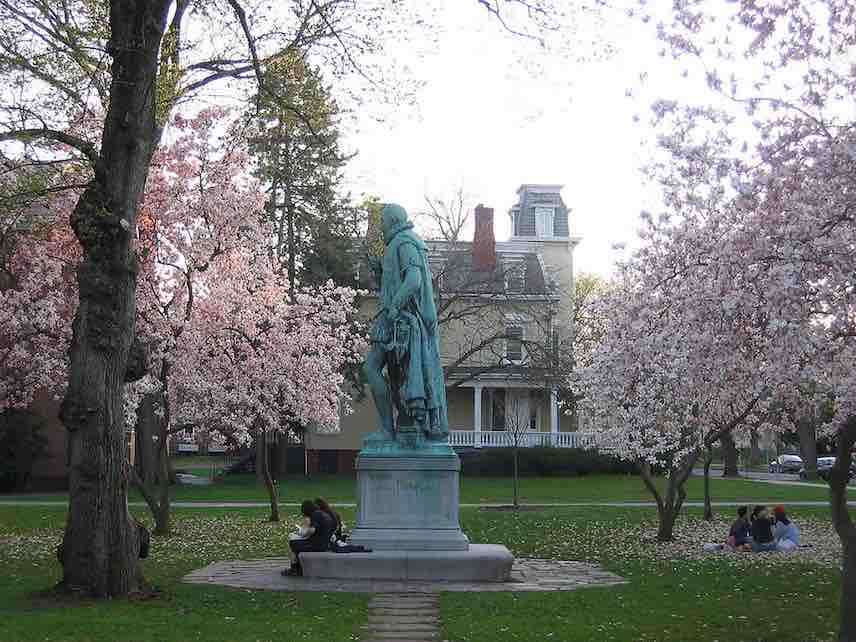Rutgers Can Criticize a White Professor for Anti-White Racism, But Punishing Him Would Violate Free Speech
"Okay, officially, I now hate white people" is a gross statement that deserves First Amendment protection.

Administrators at Rutgers University have determined that a history professor, James Livingston, violated the university's policy against discrimination and harassment when he wrote on Facebook: "Okay, officially, I now hate white people" and called Caucasians "assholes."
This is a bad outcome for academic freedom. If Rutgers takes punitive action against a professor for making insensitive comments about white people on social media, it will chill free speech on campus and imperil the right of faculty members to address controversial subjects.
Livingston, who is white, made his comments on Facebook after visiting a hamburger joint in Harlem. He described it as "overrun with little Caucasian assholes."
"I hereby resign from my race," he wrote. "Fuck these people."
Facebook determined that Livingston had violated its nebulous community standards and removed the post. And, after a bevy of campus watchdog groups weighed in, Rutgers leapt into action, according to Inside Higher Ed.
Livingston has claimed he was trying to make a point about gentrification, and was using satirical language. Ever since, he's been flooded with hateful messages from white supremacists. But one doesn't have to be a white supremacist to find Livingston's comments distasteful. If he wanted to complain about gentrification, he could have done that without expressing contempt for people because of the color of their skin.
Livingston has also argued that his post cannot possibly be racist, because there's no such thing as racism against white people. This is the theory, popular among the intersectional left—particularly in academia—that because white people have not suffered structural oppression, they cannot be victims of racism. (See the Slate Star Codex article below for an extended discussion of lefty obfuscation on this subject.)
"So we have a case where original coinage, all major dictionaries, and the overwhelming majority of common usage all define 'racism' one way, and social justice bloggers insist with astonishing fervor that way is totally wrong." https://t.co/9ZClaVHNS6
— Robby Soave (@robbysoave) August 3, 2018
But even if Livingston is wrong about anti-white racism—and to be clear, I think that he is—Rutgers has no business disciplining a professor for wrongthink. Such a course of action would violate the First Amendment (Rutgers is a public university) and would send a message that controversial subjects are off-limits on campus. As the Foundation for Individual Rights in Education notes:
Rutgers' actions come at a time when the American Association of University Professors has voiced "increasing concerns about efforts to intimidate and harass faculty" online. In a 2017 report on the trend, the AAUP called on college administrators to "defend academic freedom and to condemn targeted harassment and intimidation of faculty members"—something that Rutgers has refused to do in Livingston's case.
"By capitulating to anonymous outrage generated by an internet mob, Rutgers has shamefully betrayed its obligation to its faculty and the public, trivialized actual harassment, and signaled to would-be censors nationwide that its faculty may be silenced at will and without resistance," wrote FIRE Director of Litigation Marieke Tuthill Beck-Coon in FIRE's letter to the university.
This isn't an ambiguous situation. Livingston is not accused of harassing or discriminating against any specific student. His comments weren't even about students, and they occurred outside the classroom. It might be a different matter if he retaliated against a student for challenging his notion that anti-white racism is impossible, but no one has alleged that he did so. This is a simple free-speech case, and a powerful reminder that speech restrictions threaten left-wing as well as right-wing expression.


Show Comments (160)